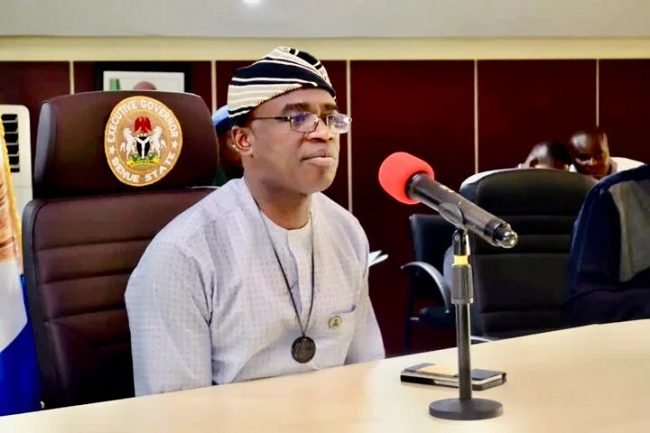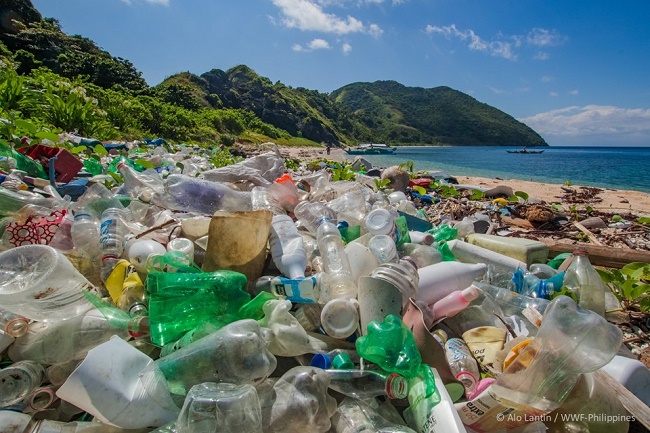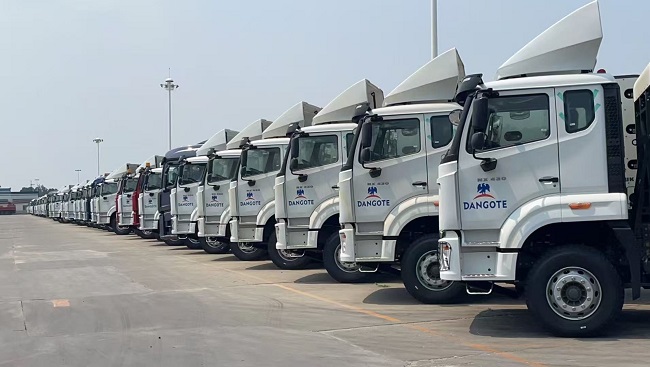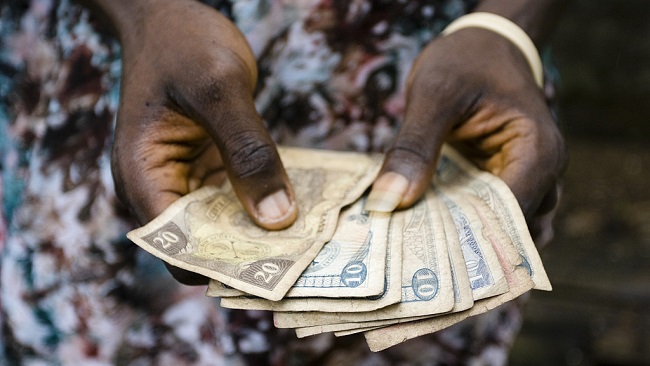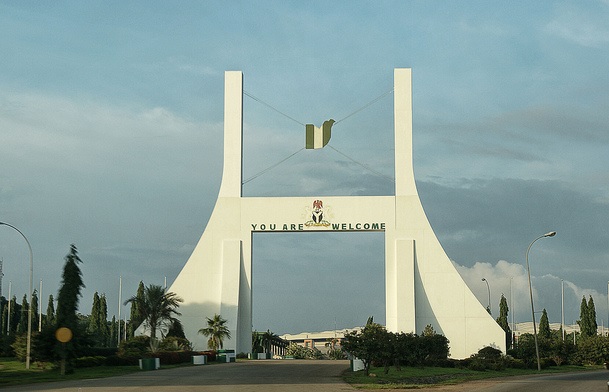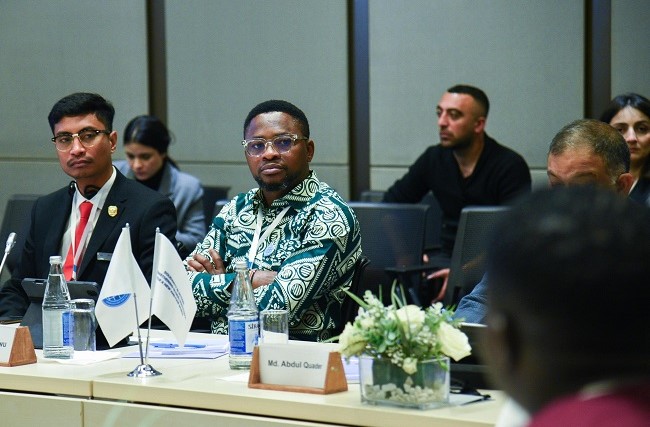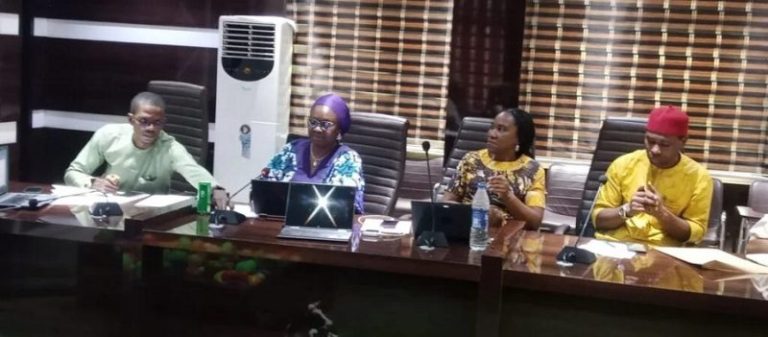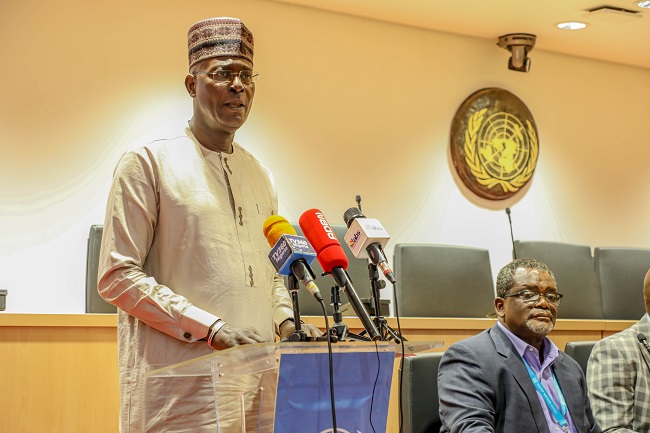The local community people in Okolobiri Community of Gbarain Kingdom in Yenagoa Local Government Area of Bayelsa State have cried out over continuous gas flares in the nearby Gbarain-Ubie Integrated oil and gas processing plant reported to be on 24 hours. They alerted that it was affecting the health of the people and polluting their lands and water.
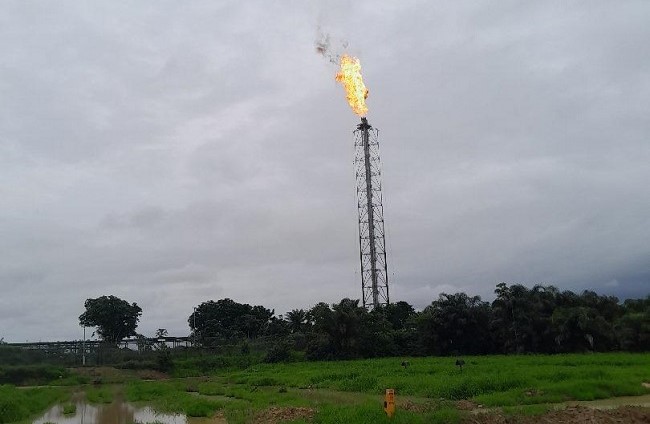
The community is host to the Bayelsa State Government-owned Niger Delta University Teaching Hospital; with Ogboloma and Obunagha communities as two of its closest neighbours. The plant flaring gas used to be operated by Shell but now operated by Renaissance Africa Energy Company since Shell’s divestment.
Following a call from the community on June 11, 2025, the field monitoring team of the Environmental Defenders Network (EDEN) led by the Deputy Executive Director, Alagoa Morris, and a journalist, visited the community on Saturday, June14, 2025, and were received by the Paramount ruler of the community, Judah Sukuruowei.
According to EDEN’s observation, the sailing gas is said to be on and off and active for 24 hours every day with its bright light and vibrations putting the community on edge. It was also observed that the street solar lights with panels facing the direction of the gas flare goes off once the volume of the flare increases to certain levels.
Speaking to the visiting team, Sukuruowei stated that the community is in a constant state of shock due to the vibrations coming from the gas flaring plant.
“Recently we have been experiencing serious vibration because of the gas flare in the neighbouring Obunagha community. The flaring volume is too high. The gas flaring is affecting the buildings in the environment. Our people rely on our river water but now we don’t have water to drink because it is polluted by gas. There is not public potable water. Health wise, we are affected; as we are inhaling the noxious gases it is affecting our health. The rate of death has increased in our environment too; even very young children are dying unexpected deaths. It is the gas flaring that is affecting the environment; seriously.”
Also speaking on the issue, a male indigene of the community, Bright Shadrack Esyine, pointed out that the implications of such continuous gas flaring on the climate and the environment of the surrounding communities, adding that it affects the soil and vegetation. He also added that houses in the community are experiencing cracks due to the vibrations from the gas flaring plant.
“We all know, it’s a global fact that when gas is flared it actually results in emission of greenhouse gases. It is a very serious problem, it’s really affecting the lives and the wellbeing of the people in neighbouring communities; especially like Okolobiri community. Recently we had a very intense and increased gas flaring resulting in disturbing noise and vibrations to the extent that it is causing walls to crack and destruction of roofs of buildings. Also, if you look at the immediate environment close to the gas flare you discover that the vegetation there is like they were set on fire. It seems this is a deliberate action by the company.”
He also pointed out that neither the international standards for gas flaring are not being followed by the company, nor are the regulatory agencies paying attention to the harm that is being done to the community.
On her part, Women Leader of the community, Tuaweri Keniwenimo, lamented that the volume of gas flaring in the community has affected soil quality, crops and farming activities, which has resulted in hardship for the women and children in the community.
“I am a mother so when it comes to matters like this I will talk a lot; because it is affecting our children seriously, including our crops and farming activities. Most women in the community built houses to support our husbands through farming. Due to the gas flaring, crops are not as productive as they used to be. It is the same thing with fishing; fishing efforts are not yielding much again. Even the little catch, we discover they are tasteless. We suffer a lot, children getting sick frequently, including mothers and people dying anyhow. Even the roofs of our buildings are getting damaged. We are experiencing many things.”
Commenting on the issue, Executive Director of EDEN, Chima Wiliams, stated that in a sane and working country, open gas flaring should not be allowed around residential areas.
He faulted the relevant monitoring agencies including the National Environmental Standards and Regulations Enforcement Agency (NESREA) which he claimed has failed to monitor such issues to call the errant companies to order.
EDEN’s Demands
(1) The Federal Ministry of Environment, through NESREA; should take up this matter as a matter of urgency with a view to addressing this lingering issue.
(2) The relevant agencies of the Bayelsa State Government, especially the Ministry of Environment and Ministry of Mineral Resources; should step in on behalf of affected communities to ensure the concerns are addressed as soon as possible.
(3) Impacted communities and, especially Okolobiri in this instance, should continue to observe keenly and if possible, document dates and times of incidents; including photo and video evidence.
(4) Impacted communities should also officially report in writing to relevant agencies of government, at local, state and federal government levels, about their plights. (5) Social and environmental justice advocacy groups, the media and legal practitioners should also look at areas they can come in to assist these communities achieve environmental justice, taking into consideration Article 24 of the African Charter on Human and Peoples’ Right.

